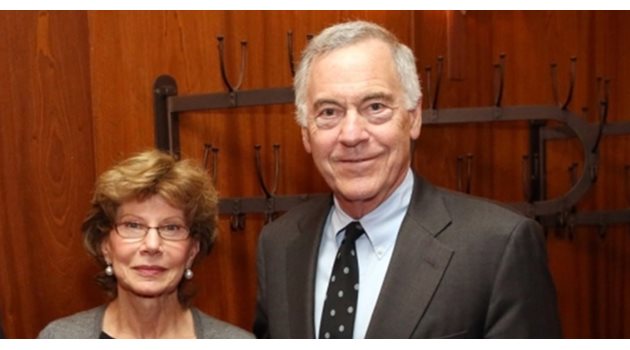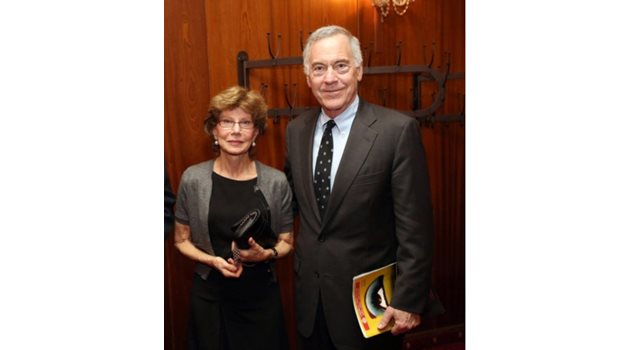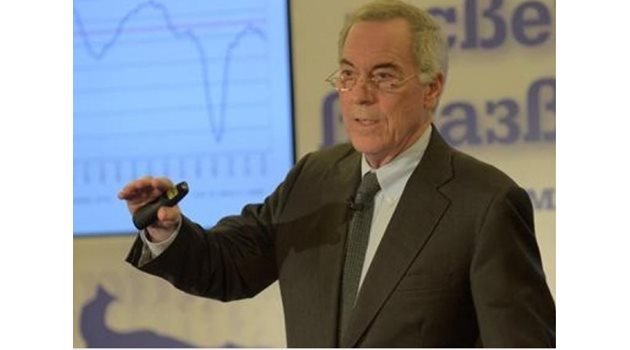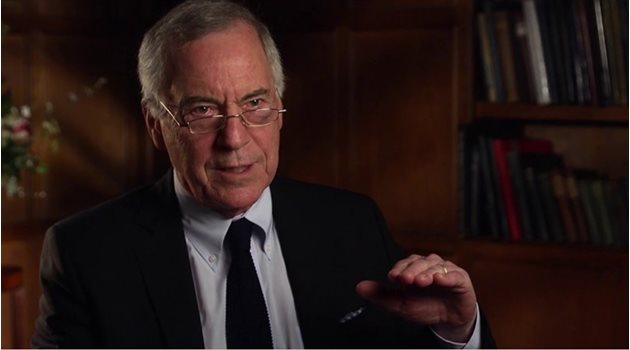Prof. Dr. Steve Hanke for the first time: How to make good predictions?
It’s the type of knowledge that is not in books and can’t be taught
An Interview with Petia Minkova
- Prof. Hanke, these days I saw a video interview of Steve Forbes on Forbes, who cited you and your work on the Bulgarian currency board and how it stopped inflation. We forgot all these events, but now all countries are faced against strong inflation. According to Steve Forbs solutions are the currency boards and he gave examples with Bulgaria, Estonia, Latvia, Lithuania, H.Kong etc. What do you think about this?
- Steve Forbes and I have engaged in discussions about money and currencies for many years. For over 25 years, I was a columnist at Forbes magazine where I wrote many articles about money and finance. Among other things, I presented evidence and argued that currency boards in emerging market countries, like Bulgaria, were always superior to central banks that operate with discretionary monetary policies. As a result, Forbes became a strong currency board advocate. Forbes likes to put Bulgaria in the spotlight because its currency board has been so successful. Indeed, in his 2014 book, Money, he mentions Bulgaria. Bulgaria also was featured in a television documentary Forbes produced on the history of money.
- Will the boards again be the protection against inflation and hyperinflation? You were the architect of currency boards in Estonia, Lithuania, Bulgaria, and Bosnia-Herzegovina. Along with economist Kurt Schuler, you have analysed financial data for the 70 currency boards created since the first in Mauritius in 1849. I remember that you said: “We have found no cases where real exchange rate appreciation and a loss of competitiveness occurred.” And: “There has never been a successful speculative attack against a currency board, primarily because currency boards are, by design, speculation proof.” But now the situation is different - can the board be a solution against inflation, when the anchor currencies will also be hit by inflation - I mean the euro and the dollar.
- Yes. The inflation rate in a currency board country roughly mirrors the inflation rate in the country that its currency is anchored to. That is because the currency board’s currency is just a clone of its anchor currency. That explains why the inflation rate in Bulgaria roughly mirrors the overall inflation rate in the Eurozone. So, as long as the anchor is sound, the currency board’s currency will be sound. That is why I am currently advocating a currency board for both Venezuela and Lebanon, two countries that have recently been in the grip of hyperinflation.
- You share Milton Friedman’s dictum that inflation is “always and everywhere a monetary phenomenon”, resulting from a rise in the quantity of money relative to output. Do you think that the only effective way to stop inflation is to restrain the rate of growth of the money supply?
- Yes. My good friend and mentor Nobelist Milton Friedman was right. Inflation is always linked to the rate of growth in the money supply. It is money that provides the fuel for inflation. So, the only way to slow down inflation is to slow down the growth in the money supply. And the best way for emerging market countries to control inflation is to tie their currencies to a sound, non-inflating anchor currency via a currency board.
- In one of your interviews, you said: “The response of most countries to COVID-19 has been to push the money supply accelerator to the floorboard. With the exception of China and Japan, broad measures of money are still growing by more than 10% per year in all of the world’s major economies. In the US, the broadly measured money supply has soared to heights not seen since 1943.”
What is your forecast for inflation in Bulgaria, in Europe, in the USA?
- In general, the growth in the money supply, broadly measured, has surged since the COVID pandemic started in February 2020. In the U.S., the growth in the money supply has been the most dramatic, with broad money growing by almost 35%. In the Eurozone, the growth in the money supply has been much more modest, a little over 14%. In China, broad money has grown at a little over 13%, and in Japan, it has only grown by about 11%. Given these increases in the money supply and adjusting them for the anticipated increases in the demand for money, I am forecasting the following inflation rates for 2022: U.S.A. (5%-6%), Eurozone (3%), China (1.75%), and Japan (1%). As for Bulgaria, since the lev is tied to the euro via the currency board, the inflation will be roughly the same as the Eurozone’s 3%.
- How can ordinary people protect their savings in such a situation?
You manage huge assets in the financial markets and follow Warren Buffett's rule - never lose money! What is your strategy now?
- There are many ways to protect one’s savings. My advice would depend on each person’s particular details. That said, one sure way to protect savings from the ravages of inflation is to purchase government bonds that are indexed to inflation. With indexed bonds, if inflation goes up, the bonds’ principal and interest payments go up lock-step with inflation. So, investors are protected from inflation. Back in February and in anticipation of more inflation in the U.S., I purchased some U.S. Treasury bonds that are indexed to inflation. Those bonds protect my investment from inflation and will also generate a nice profit if my inflation forecast is correct.
- Some people talk that cryptocurrencies will be a shield against inflation. A few months ago, we discussed how President El Salvador's Bukele adopted bitcoins as the official currency on the grounds of reducing bank fees and transaction costs. I remember that then you accurately predicted what would happen and that it would not be accepted. I admit I didn't believe you. This seemed to me a revolution against the dominance of banks and financial systems. We argued, but you said solid arguments - the real fees for cryptocurrencies are higher than bank charges, the lack of internet and ATMs in El Salvador, also that bitcoins are like elevators and cannot keep the value and will not be accepted. I enjoyed the revolution and liked pictures from El Salvador with people selling burgers for bitcoins, but now your prediction has come true. The question is how did you guess?
- You pose a very interesting question. On the one hand, I never guess about anything. First, I employ economic principles, simple models, and facts at my disposal to reach a conclusion. That is the craft that I have learned in over 65 years of investing and trading. On the other hand, I always “guess.” Over the years, I have acquired a great deal of what Michael Polanyi termed “tacit knowledge.” It’s the type of knowledge that is not in books and can’t be taught. It is the kind of knowledge you acquire by watching and listening. It is difficult to define, but it is similar to what people often term “intuition.” So, after I objectively analyze a problem, I then make a “guess.” And my tacit knowledge has proven to give me the ability to often “guess” the correct answer. This is the all-important art of my craft.
- You have denied the US government about inflation, and it seems that you will be right. How do you keep track of so many details in so many different countries?
- Ironically, simplicity is the answer. Next to honesty, simplicity is the most important thing in business and banking. To keep things simple, the secret is to know what the essential elements are and how they fit together. I learned the wisdom of simplicity and how to trade at my grandfather Hanke’s knee, when I was a country boy growing up in the state of Iowa. That is the state where the tall corn grows. My grandfather had a rather large agricultural operation. It had many moving parts that were stretched across the United States. He made things tick like a Swiss clock because he kept things simple. Even as a young boy, I could understand the basics of how his operation worked. I also learned another important lesson from my grandfather: the harder you work, the luckier you become.
- What is the algorithm of your thinking?
- The most reliable way to forecast inflation is with a very simple equation that was first formulated by the great American economist Irving Fisher in 1911. It’s called the equation of exchange. When it comes to macroeconomics, I always tell my students that Fisher’s equation is a theory of everything. Forget all the fancy modern algorithms. They don’t work. Your question reminds me of an aspect of my work that has served me well and saved me a great deal of time and money. When I am faced with a problem, I always go back to see what the great ones from the past have had to say about whatever the problem is that I happen to be grappling with.
- Do you have a great team?
- Yes. My main collaborator happens to be Mrs Hanke. She is not an economist, but rather a Parisian, a philosopher, and a literary critic. Mrs Hanke covers all of the cultural and geopolitical aspects of what is, in fact, a truly joint enterprise. Interestingly, the cultural and geopolitical aspects are often the most important. Fortunately for me, I have the pleasure and benefit of Mrs Hanke’s knowledge and wise counsel every day of the week.
For day-to-day operations, I rely on around 30 first-rate assistants who operate as apprentices. With my assistants, I keep things very simple and do not tolerate mistakes, even tiny mistakes. I teach my assistants the meaning of a “precision drill.” That is why they all will become highly successful journeymen, and some might even become masters of the craft. I also have a network of trusted contacts throughout the world. When I need something in Latin America, Europe, China, or elsewhere, I can pick up the phone and obtain whatever I might need without problems.- I remember that you once wrote an article in the Wall Street Journal and your co-author was the head of one of the largest investment funds in the world, which managed hundreds of billions of dollars - tens of times larger than Bulgaria's gross domestic product. Since then, I'm always going to ask you - do you know everything with such precision and because of your contacts with some of the most influential people on Wall Street?
- To some degree, the answer is “yes.” But, there are several things to keep in mind. You have to know what information you are looking for and what questions to ask. Then, you have to know who to ask. That is the hard part. There are surprisingly few people who are reliable and actually “know” the correct answers. Most of what is produced by Wall Street’s investment banks is very “noisy.” You have to learn how to separate the “signal” from the “noise.” That is where “tacit knowledge” comes into play.
Well, I've been trading soybeans since I was 14 years of age, and Al Carver, who I went from kindergarten through the last grade in high school with, is conveying detailed information to me about the soybean yields, specifically, a very good crop, about 65 bushels to the acre. At $13/bushel, that amounts to roughly $845 gross revenue per acre. And since he's harvesting about a 1000 acre farm. That's a gross revenue of about $845,000 for soybeans. That's a lot of money. But, the capital costs in agriculture are very high. Agriculture in America is a very capital intensive and sophisticated industry. For example, the combine Al is driving is equipped with more computers than you could shake a stick at and costs approximately $500,000. And the farmland that he's driving over is worth about $10,000 per acre, for a total value of about $10,000,000. As for Al, he received his bachelor's and master's degrees at Iowa State University, one of the world's greatest agricultural universities. So, back to your question, I have extremely close and loyal contacts for details about any aspect of markets and trading where I am interested and involved.
By the way, that 1,000 acre farm that my old pal and collaborator Al Carver is harvesting soybeans on is only one of many farms he owns. Don’t be fooled by Wall Street and all its Hollywood-type glitter. Many good old country boys have much larger and sounder balance sheets. One lesson in life that I learned as a country boy is that it’s good to eat humble pie each day, and to, at the end of the day, stay close to your roots. It keeps you honest and out of trouble.



































